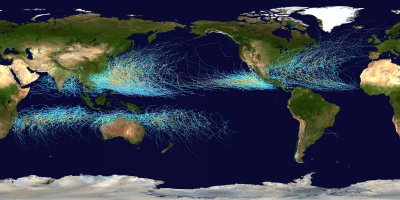The Kassel World War II bombings were a set of Allied strategic bombing attacks which took place from February 1942 to March 1945. In a single deadliest raid on 2223 October 1943, 150,000 inhabitants were bombed-out, at least 6,000 people died, the vast majority of the city center was destroyed, and the fire of the most severe air raid burned for seven days. The US First Army captured Kassel on 3 April 1945, where only 50,000 inhabitants remained, versus 236,000 in 1939.
A firestorm is a conflagration which attains such intensity that it creates and sustains its own wind system. It is most commonly a natural phenomenon, created during some of the largest bushfires and wildfires. Although the term has been used to describe certain large fires, the phenomenon's determining characteristic is a fire with its own storm-force winds from every point of the compass towards the storm's center, where the air is heated and then ascends.The Black Saturday bushfires and the Great Peshtigo Fire are possible examples of forest fires with some portion of combustion due to a firestorm, as is the Great Hinckley Fire. Firestorms have also occurred in cities, usually due to targeted explosives, such as in the aerial firebombings of Hamburg, Dresden, and Tokyo, and the atomic bombing of Hiroshima.

1943Oct, 22
World War II: in the Second firestorm raid on Germany, the Royal Air Force conducts an air raid on the town of Kassel, killing 10,000 and rendering 150,000 homeless.
Choose Another Date
Events on 1943
- 11Feb
Dwight D. Eisenhower
World War II: General Dwight D. Eisenhower is selected to command the allied armies in Europe. - 30May
Auschwitz concentration camp
The Holocaust: Josef Mengele becomes chief medical officer of the Zigeunerfamilienlager (Romani family camp) at Auschwitz concentration camp. - 19Jun
Pittsburgh Steelers
The Philadelphia Eagles and Pittsburgh Steelers in the NFL merge for one season due to player shortages caused by World War II. - 6Nov
Kiev
World War II: The Soviet Red Army recaptures Kiev. Before withdrawing, the Germans destroy most of the city's ancient buildings. - 4Dec
Josip Broz Tito
World War II: In Yugoslavia, resistance leader Marshal Josip Broz Tito proclaims a provisional democratic Yugoslav government in-exile.

 English
English  español
español  français
français  português
português  русский
русский  العربية
العربية  简体中文
简体中文 